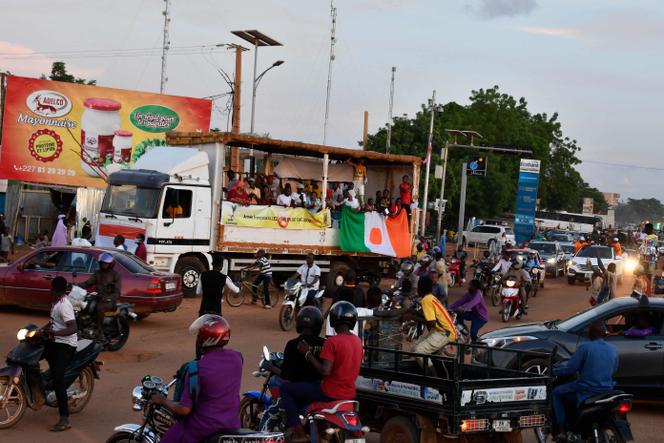


Night was falling on the Niger River when Niamey residents learned of the decision which, if implemented, could plunge their country into war. On Thursday, August 10, the heads of state and representatives of the Economic Community of West African States (ECOWAS) ordered the mobilization of its military force at an extraordinary summit in Abuja. The same objectives that have been repeated since the early hours of the July 26 coup against President Mohamed Bazoum were invoked: to dislodge from power the coup leaders commanded by General Abdourahamane Tiani and to free the elected president, currently held captive with his wife and son, in order to restore constitutional order.
The threat of military intervention by west African armies has hung over the Niger junta since the previous ECOWAS summit on July 30, when the regional organization set the generals a one-week ultimatum. Determined to retain power in Niamey at the risk of compromising the security of its members, the deadline expired without the National Council for the Safeguard of the Homeland (CNSP) showing the slightest sign of surrender. A new chance for dialogue emerged, but on Tuesday, August 8, the junta refused the arrival in Niamey of the joint delegation dispatched the same day by ECOWAS, the African Union and the United Nations.
"All diplomatic efforts undertaken by ECOWAS to resolve the crisis have been defiantly rebuffed by the military leadership," lamented the organization in its final press release on Thursday. While underlining "its determination to keep all options open for a peaceful resolution of the crisis," ECOWAS reiterated its readiness for military intervention. The details, the "how" and "when," were defined by the chiefs of staff of member countries meeting in Abuja from August 2 to 4. A further planning step was taken on Thursday when ECOWAS gave "instructions" to the armed forces chiefs of staff committee "to mobilize the force and all its components without delay."
The force was created in 1990 on Nigeria's initiative to put an end to the civil war in Liberia. It subsequently intervened in Sierra Leone, Ivory Coast, Guinea-Bissau, and, in its most recent operation to date, Gambia in 2017. The deployment schedule, number and exact origin of the soldiers making up the force have not yet been communicated. Ivory Coast believes the coup leaders should be dealt with firmly. Returning from Abuja, President Alassane Ouattara announced on Thursday evening that his country would "provide a battalion" of 850 to 1,100 men, alongside Nigeria and Benin, as well as "all the financial provisions" necessary for the smooth running of an operation "as quickly as possible."
You have 63.96% of this article left to read. The rest is for subscribers only.
